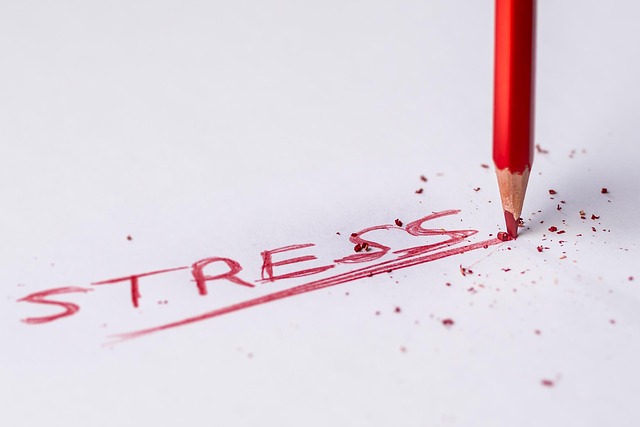April is Stress Awareness Month, and April 7-13, 2025, is also Public Health Week. And, a quick reminder: File your US taxes or request an extension by April 15th!
Today, let’s look at how to recognize and manage stress. Various research studies over the years show that change significantly impacts stress levels. The connection between change and stress is well-documented in psychological and physiological research.
One of the more recent studies is from the APA. The American Psychological Association’s Stress in America identifies change and uncertainty as major stress triggers. Their 2023 report specifically noted that economic changes and uncertainty were among the top stressors for Americans.

Image by Pedro Figueras from Pixabay
Managing Stress in Uncertain Times
In today’s world, change remains our only constant companion. This April, as we observe Stress Awareness Month, it’s worth examining how the perpetual waves of change—whether economic shifts, technological advancements, or global events—affect our mental well-being and what we can do to stay balanced when everything around us seems to be in flux.
The Ripple Effect of Constant Change
Our brains are remarkably adaptable, but they’re also wired to be vigilant about changes in our environment. When changes come rapidly and unpredictably, as they often do in today’s interconnected world, our nervous systems can remain in a heightened state of alertness.
Recent economic fluctuations, including tariff adjustments that affect prices and supply chains, represent just one example of the kind of change that can reverberate through our daily lives in unexpected ways. These ripples of change don’t just affect our wallets—they influence our minds and bodies too.
Studies show that prolonged uncertainty can trigger our stress response, releasing cortisol and adrenaline that, over time, may contribute to everything from headaches and digestive issues to insomnia and weakened immunity. The mental toll can be equally significant: anxiety, difficulty concentrating, and emotional exhaustion often follow in the wake of constant adaptation.
Recognizing Your Stress Signals
Before we can manage stress effectively, we need to recognize it. Your body sends clear signals when it’s overwhelmed:
Physical signs might include tension headaches, shallow breathing, or a racing heart. Mentally, you might notice your thoughts circling worriedly or find yourself unable to focus on tasks. Emotionally, irritability, anxiety, or a sense of helplessness can indicate rising stress levels.
These signals aren’t weaknesses—they’re valuable information your body provides, letting you know when it’s time to implement self-care strategies.
Creating Stability in Unstable Times
While we cannot control the pace of global change, we can create islands of stability within our personal lives:
Establish daily rhythms. Regular routines for sleep, meals, and exercise provide predictability that grounds us amid uncertainty. Even simple rituals like morning coffee or evening walks can become meaningful anchors.
Practice mindful consumption of information. While staying informed is important, constant exposure to news can amplify stress. Set boundaries around when and how much news you consume.
Nurture connections. Social support buffers us against stress. Regular conversations with trusted friends and family create spaces where we can process our experiences and feel understood.
Embrace stress-reduction techniques. Activities like staying active, meditation, deep breathing, or yoga activate our parasympathetic nervous system, countering the physiological effects of stress.
Focus on what you can influence. When larger changes feel overwhelming, redirect your energy toward areas where your actions make a difference—your immediate environment, personal projects, or community involvement.
Maintain a Healthy Diet. A well-balanced diet plays a key role in stress management. Nutrient-rich foods like fruits, vegetables, whole grains, and lean proteins help regulate mood and energy levels. Staying hydrated and minimizing caffeine and sugar can also prevent unnecessary stress and irritability.
Quality Sleep. A good night’s sleep plays into reducing stress. Create a comfortable sleeping environment and limit screen usage before turning out the lights.
As you navigate uncertain times, remember that stress is not a personal failure but a natural response to challenging circumstances. By acknowledging your stress and implementing consistent self-care practices, you can build resilience that serves you through current changes and whatever new developments await on the horizon.

Image by Pete Linforth from Pixabay
Wellbeing
This Stress Awareness Month, commit to supporting your wellbeing and the wellbeing of those around you as you learn to thrive amid life’s constant changes.
Like a broken record, allow me to remind you how important it is that you plan for uncertain times. Spring is showing us her force with the storms we’ve seen already this season.
Whether it is a natural storm or a personal storm, when things strike, it’s hard (if not impossible) to think clearly and respond well. Talk about stress – whew. Each occurrence highlights gaps in our planning.
Reach out when it’s time to discuss your planning. Send me an Email or Book Time with Lynn if you have any questions. For additional information about my work, check out @ The Living Planner or @ The Living Planner.
If you’re up for planning your life’s administrative side, my book is a resource. The Living Planner What to Prepare Now While You Are Living © Check it out HERE.
Quote for the week: “The greatest weapon against stress is our ability to choose one thought over another.” – William James.
Keep breathing those deep breaths.❣️ Lynn
#PlanfortheUnplanned #Can’tPredictCanPrepare

